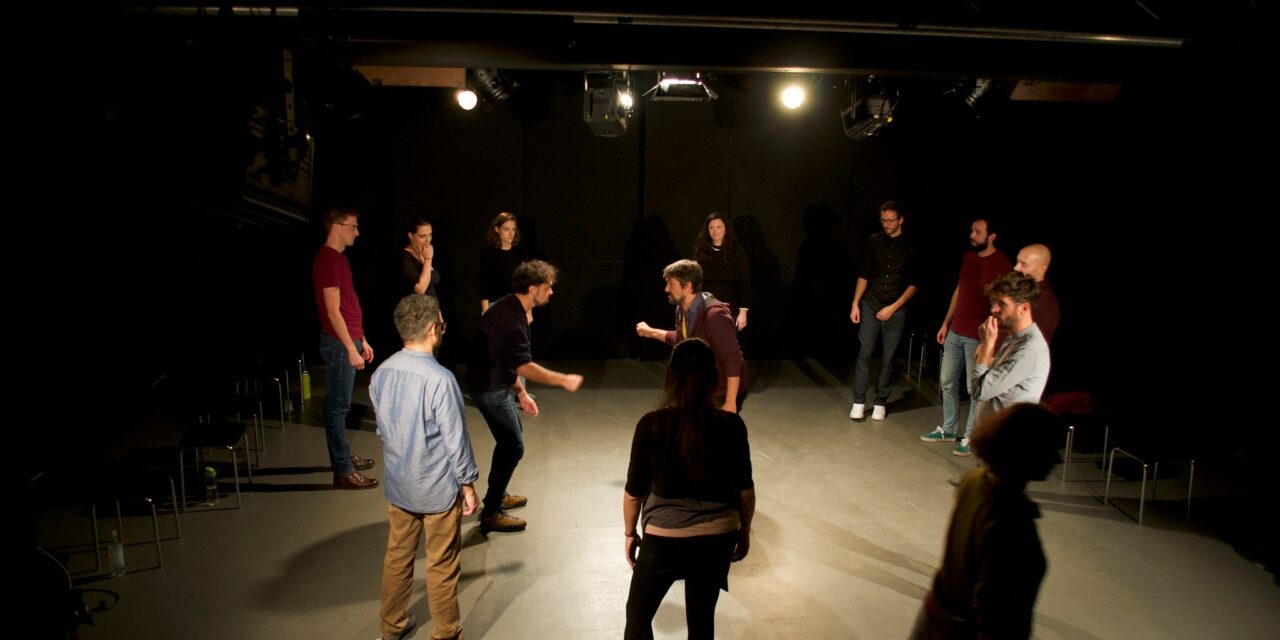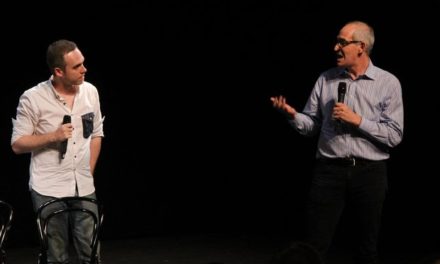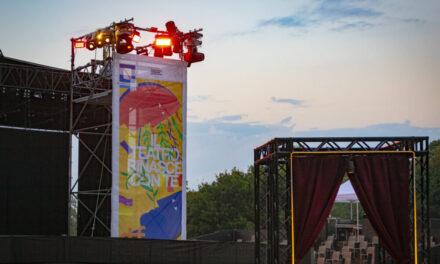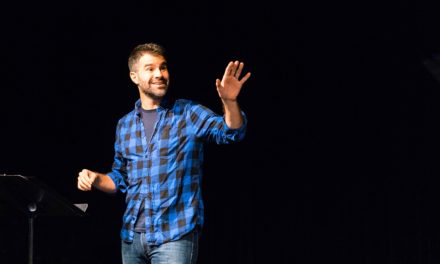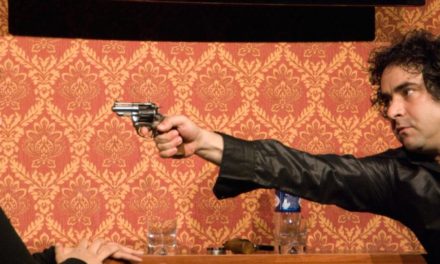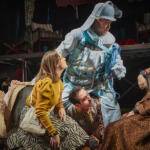Gianni Rodari is a cult writer and, probably, one of the most influential in the Italian 20th-century tradition, deeply studied mainly by scholars of pedagogy and educational sciences. Author, journalist, winner of the Hans Christian Andersen Awards, Rodari not only is a writer specialized in children literature and in the “fantastico” but he is also an intellectual that artistically and theoretically reflected upon what story-telling is and how it works, such as in his Grammatica Della Fantasia (Grammary of the Fantasy, 1973), the only theoretical book in Rodari’s vast production. In Grammatica Della Fantasia, Rodari’s opus magnum, the author discusses and investigates the “constants” of the fantastic mechanisms, the laws of inventions and imaginations, and the creative process that is inside each human being.
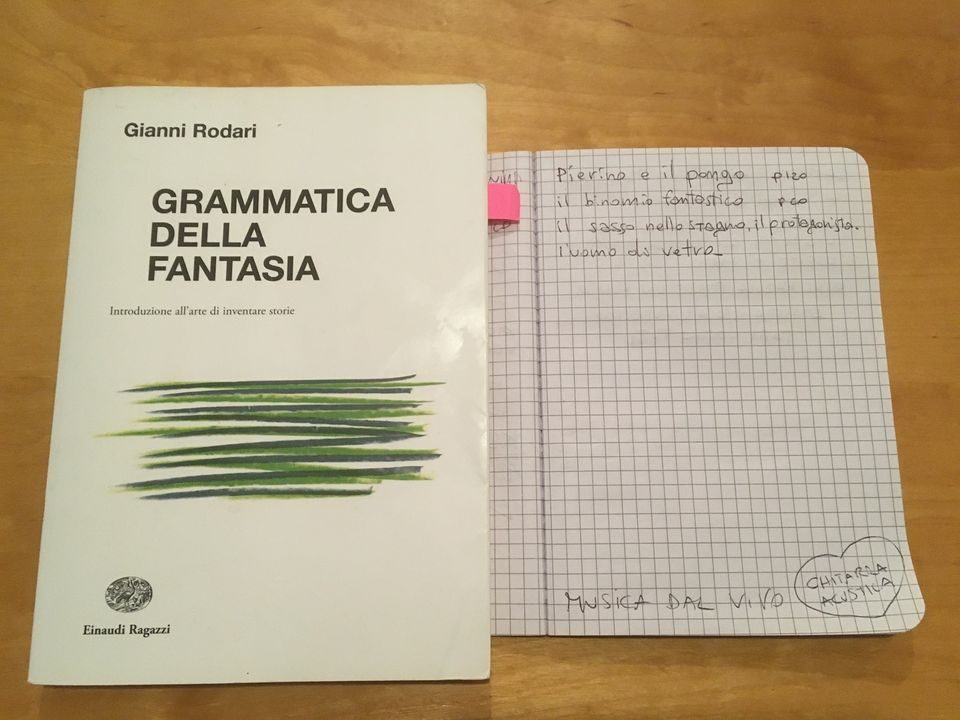
Photo courtesy of Berlino Italia Improv.
In 2020, many are the events organized in Italy and abroad to celebrate Rodari’s 100 anniversary, such as the new edition of his complete works in the prestigious “Meridiani” series published by Modadori. Among the activities for the centennial, an interesting theatre event is the “adaptation” of Grammatica Della Fantasia into an improv performance, curated by Luca Rizzuti, artistic director of Berlino Italia Improv, with its premiere on the 25th October 2020 at the Acud Theatre in Berlin.
For the occasion, I have had the opportunity to have a short interview with the artistic director, director, and performer himself Luca Rizzuti.
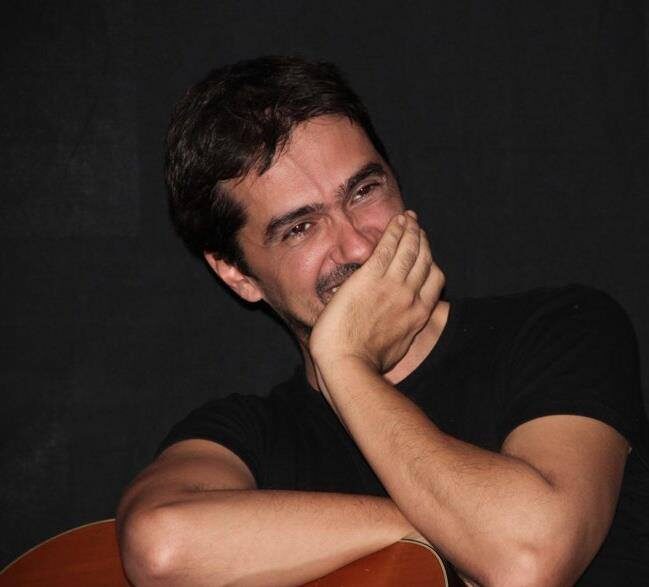
Photo courtesy of Berlino Italia Improv.
How did you have the idea of working on Gianni Rodari? And why exactly on Grammatica Della Fantasia?
Luca Rizzuti: It is a very old story. The first book I read, when I was a child, was Rodari’s Favole al Telefono. On the other hand, I discovered Grammatica Della Fantasia – that is not a children’s book – when I started doing performances and being a theatre practitioner. In the Italian theatre improvisation environment, it is considered an essential and seminal book.
You are a performer and a teacher specialized in improvisation. How do you work in this case moving from a written text that you are “adapting”?
LR: I draw a lot. I draw sketches and write down notes. I try to visualize as much as I can the different elements that composed the text in order to reach a synthesis and be prepared for the moment of the improvisation. In this way, I would like to give to the audience an experience that is, at the same time, entertaining and educational. Improvised but faithful to the original text.
Grammatica Della Fantasia is a seminal text for story-telling. What can it still teach to theatre and improvisation practitioners?
LR: It is a text focused on the techniques but though for those who work, e.g., with children and can help them to invent their stories on their own and free their imagination. Consequently, it is very interesting and useful for whoever creates and tells a story, such as people who make theatre, and also for an improv performer who is, at the same, actor, director, and writer.
How have you got involved in improvisational theatre?
LR: I started as an improv musician, playing acoustic guitar for an improv theatre group. Then I started following other ensembles, and I saw many shows. It was a consequence that I fell in love with this kind of performance.
You are not only a performer but also a teacher, directing one of the main improv school in Berlin. How do you work with your students?
LR: My works consist not in teaching my students how to create collective stories in a specific moment, but in helping them to recognize and understand the “survival” technique that they have unconsciously developed themselves through the years: a series of behavior that we have started developing in the family, at school, at the working place, in the society, in order to stay sheltered from any dangerous situation that can cause a punishment or a failure. To be a good improv performer, we need to remove or, at least, learn how to dissimulate a series of insecurities and an instinct “not to act”, “not to take a position” because we are scared to fail or because we are shy.
This post was written by the author in their personal capacity.The opinions expressed in this article are the author’s own and do not reflect the view of The Theatre Times, their staff or collaborators.
This post was written by Armando Rotondi.
The views expressed here belong to the author and do not necessarily reflect our views and opinions.

